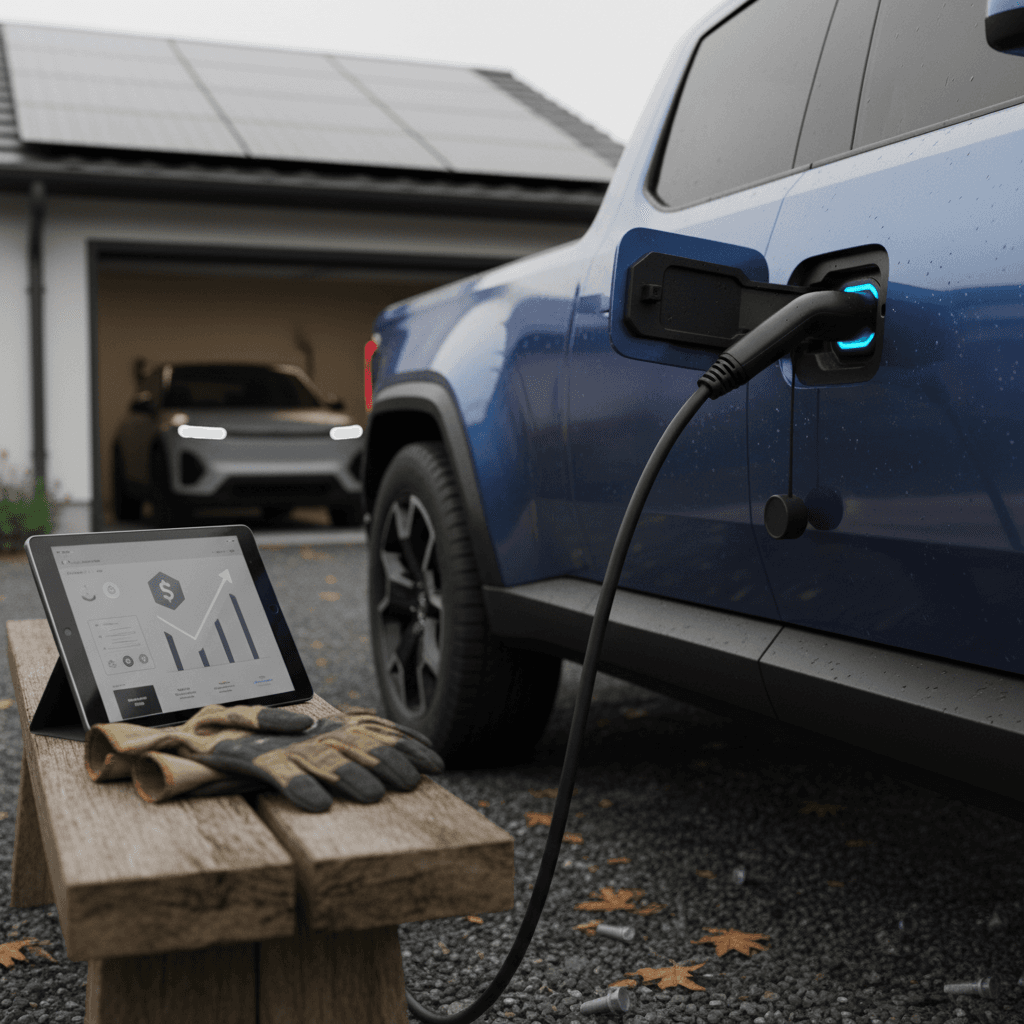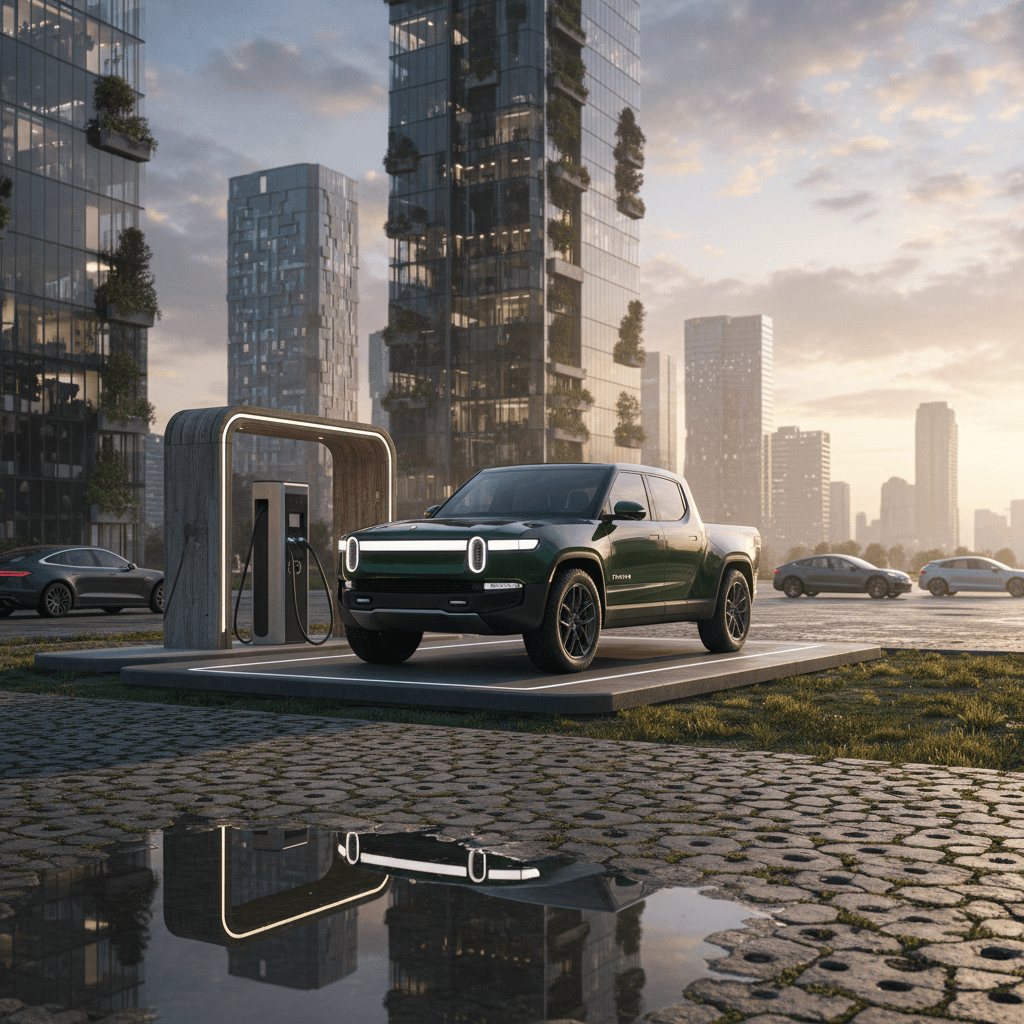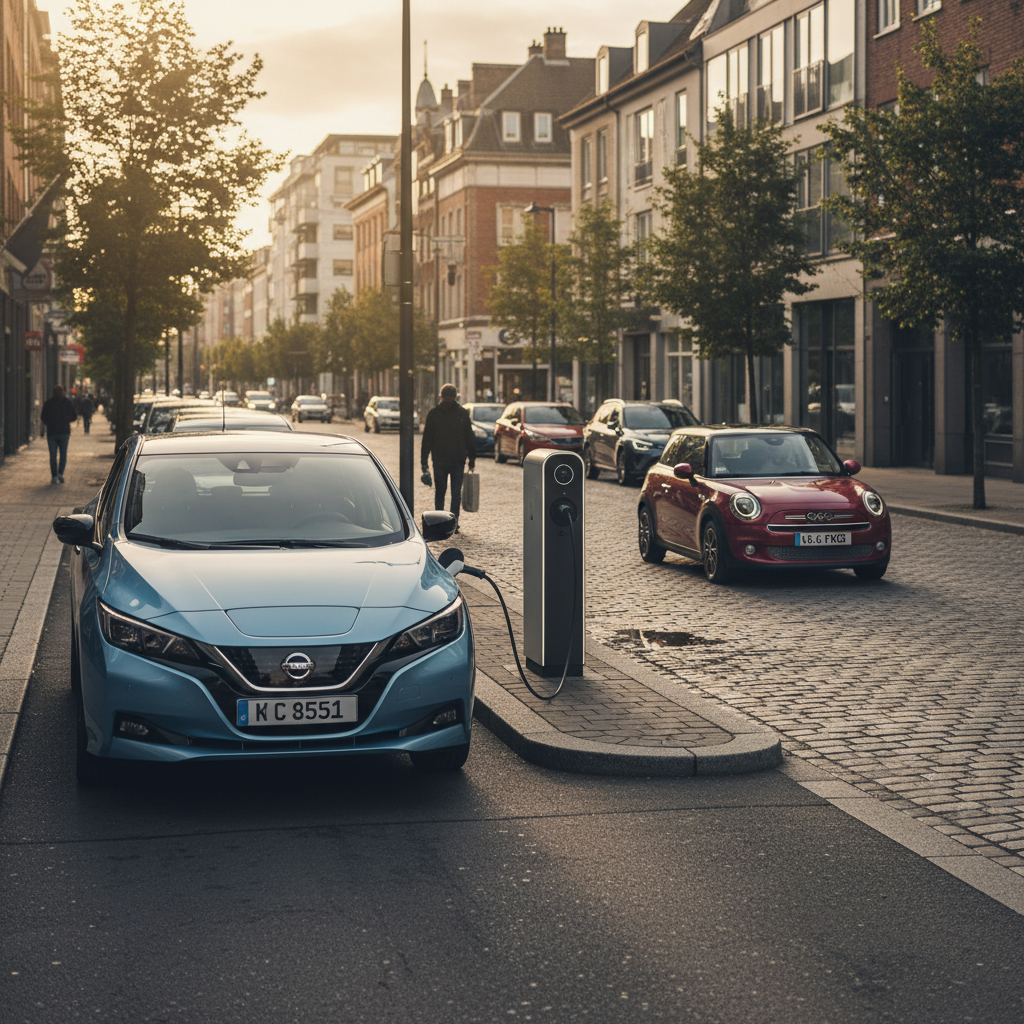If you’re shopping for an electric car in 2025, the phrase “best electric vehicle warranty” isn’t just marketing fluff, it’s a proxy for how confident the automaker is in its battery. Batteries are the heart, soul, and wallet-breaker of an EV, and the warranty is your only written promise that the heart won’t fail early.
Fast snapshot
Why the “best” electric vehicle warranty matters more for EVs
On a gasoline car, the powertrain warranty is important but rarely catastrophic. On an EV, the high-voltage battery is the single most expensive component. Replacement can run from $5,000 to $20,000+ depending on model and labor, which means the difference between a bad day and a totaled car.
- An EV battery warranty directly protects you from early battery failure or severe degradation.
- A stronger warranty usually signals better engineering and thermal management, not just paperwork.
- When you sell or trade in your EV, remaining battery coverage is a huge lever on resale value.
- Warranty terms influence how stress-free it feels to fast‑charge, road‑trip, or park in extreme climates.
Don’t just look at years and miles
How electric vehicle warranties actually work
Every new EV sold in the U.S. comes with multiple overlapping warranties. To decide which is the best EV warranty for you, you need to understand how these pieces fit together.
The four layers of an EV warranty
You’re not just buying “8 years / 100,000 miles”
1. Bumper-to-bumper
Typically 3–5 years / 36,000–60,000 miles. Covers most components except wear items and a few exclusions.
Think: screens, sensors, switches, interior electronics.
2. Powertrain / drivetrain
Usually 5–10 years depending on brand. On EVs this often overlaps with the battery warranty but may cover motors, inverters, and gearboxes.
3. High-voltage battery
The star of the show: 8–10 years / 100,000–150,000 miles for most modern EVs. Many include a 70% capacity retention guarantee.
4. EV components & corrosion
Coverage for onboard charger, DC fast‑charge hardware, cables, and body corrosion. Terms vary widely by brand.
Rule of thumb
Brands with the best EV battery warranties in 2025
Strip away the ad copy and you’ll see a pattern. In 2025, the best electric vehicle warranties tend to fall into three camps: leaders with 10‑year coverage, strong 8‑year standards, and a few standouts with higher mileage caps or special perks.
EV battery warranty landscape in 2025
Tier 1: Hyundai, Kia, Genesis & Mitsubishi – long and generous
If you want a simple answer to “who has the best electric vehicle warranty,” the Korean trio, Hyundai, Kia, Genesis, and oft‑overlooked Mitsubishi sit at the top of almost every warranty comparison.
- High-voltage battery: typically 10 years / 100,000 miles with a 70% capacity guarantee.
- Powertrain: around 10 years / 100,000 miles for original owners, which pairs nicely with the battery term.
- Bumper‑to‑bumper: competitive 5‑year limited warranties on many models.
- Reputation: Hyundai/Kia in particular have built a whole brand identity around long warranties, and they tend to honor them without drama.
Why this tier wins
Tier 2: Tesla, Toyota/Lexus, Rivian – strong but different
The second tier isn’t “worse,” it’s just different. Tesla, Toyota/Lexus, and Rivian all have compelling EV warranties, but the strengths shift.
Tesla
- Battery: 8 years with mileage caps that vary by model (100,000–150,000 miles is typical).
- Capacity guarantee: around 70% in most regions.
- Extra: Excellent corrosion coverage (up to 12 years unlimited miles on many models).
In practice, Tesla packs tend to age well, but proving degradation can be tricky without an official battery health report.
Toyota & Lexus (bZ & hybrids)
- Battery: often 10 years / 150,000 miles on hybrid and many EV batteries.
- Reputation: Decades of hybrid reliability experience baked into the policy.
- Fine print: Capacity guarantees are sometimes less explicit, so read carefully.
Rivian
- Battery: up to 8 years / 150,000 miles depending on model.
- Corrosion: strong 8‑year / unlimited‑mile corrosion coverage.
- Positioning: Designed for adventure use, so the warranty is tailored for heavy‑use owners.
Tier 3: Everyone else – solid but average
Brands like Ford, Chevrolet, BMW, Mercedes‑Benz, Volkswagen, Volvo, Polestar, Nissan and others mostly cluster around the industry baseline: 8 years / 100,000 miles, 70% capacity. That’s good coverage; it’s just no longer exceptional.
“Average” isn’t bad
Electric vehicle warranty comparison: key brands
Here’s a simplified snapshot of how the best electric vehicle warranties stack up. Exact terms vary by model and region, but this gives you the lay of the land.
Major EV battery warranties in 2025 (U.S. market, typical terms)
Always confirm the specific warranty booklet for the exact model and year you’re considering.
| Brand | Typical Battery Term | Mileage Limit | Capacity Guarantee | Warranty Tier |
|---|---|---|---|---|
| Hyundai | 10 years | 100,000 mi | ~70% | Tier 1 – Excellent |
| Kia | 10 years | 100,000 mi | ~70% | Tier 1 – Excellent |
| Genesis | 10 years | 100,000 mi | ~70% | Tier 1 – Excellent |
| Mitsubishi | 10 years | 100,000 mi | ~70% | Tier 1 – Excellent |
| Toyota / Lexus | 10 years | 150,000 mi (many hybrids/EVs) | Often 70% | Tier 2 – Strong |
| Tesla | 8 years | 100,000–150,000 mi | ~70% | Tier 2 – Strong |
| Rivian | 8 years | up to 150,000 mi | ~70% | Tier 2 – Strong |
| Ford | 8 years | 100,000 mi | Often 70% | Tier 3 – Solid |
| GM (Chevy, Cadillac) | 8 years | 100,000 mi | 60–75% depending on model | Tier 3 – Solid |
| VW / Audi / Porsche | 8 years | 100,000 mi | 70% | Tier 3 – Solid |
| Nissan | 8 years | 100,000 mi | 70% | Tier 3 – Solid |
| BMW / Mercedes‑Benz / Volvo / Polestar | 8 years | 100,000 mi | ~70% | Tier 3 – Solid |
“Years / miles” refer to the high‑voltage battery warranty for most U.S. buyers.
Always read the booklet
Used EV warranties: what transfers and what doesn’t
The used market is where EV warranties get interesting. Most modern EV battery warranties do transfer to subsequent owners, but there are three traps you want to avoid.
Three common warranty traps on used EVs
1. Non-transferable extended coverage
Some 10‑year powertrain or battery warranties only apply to the original owner. When the car is sold, coverage drops to a shorter term for the next buyer. Hyundai/Kia are famous for this distinction.
2. Lapsed maintenance requirements
A few brands require software updates or inspections on schedule. Skipping them can give the manufacturer an excuse to deny a claim later if the battery fails.
3. Branded titles and modifications
Insurance total loss, salvage, or heavy aftermarket modifications (e.g., hacked charging hardware) can void the high‑voltage battery warranty entirely.
Where Recharged fits in

Are EV extended warranties worth it?
Once you realize a battery pack can cost as much as a nice used Civic, the lure of an EV extended warranty is obvious. But like all insurance products, value depends on who you are and how you drive.
When an EV extended warranty can make sense
- You drive more than 15,000 miles a year and will hit the mileage cap before the time limit.
- You live in an extreme climate, Phoenix summers, Minnesota winters, where heat or cold accelerates degradation.
- You’re keeping a premium EV 10+ years and want cost certainty after the factory warranty ends.
- You’re buying an older used EV with 50,000+ miles and only a few years of coverage left.
When you probably don’t need one
- You lease, or know you’ll sell within 5–6 years.
- You live in a mild climate and mostly Level 2 charge at home.
- Your EV still has a lot of factory battery coverage left.
- You’re buying a value‑oriented used EV and don’t want to over‑insure.
Typical extended warranty pricing
How warranty affects used EV value (and how Recharged helps)
In the used EV world, remaining battery warranty is like extra range: you don’t think about it constantly, but you definitely feel better knowing it’s there. A car with three or four years of battery coverage left is simply easier to sell and often worth more than an otherwise identical car with only months remaining.
Three ways a strong EV warranty boosts value
Especially when you’re looking at used models
1. Higher resale price
Buyers will pay more for EVs that still have substantial battery coverage on the clock. It’s baked into the negotiation even if nobody says the word “warranty.”
2. Larger buyer pool
Nervous first‑time EV shoppers gravitate toward cars with clear, long warranties. That makes your car easier to move when it’s time to sell or trade.
3. Easier financing
This is why Recharged leans so hard into transparency. Every vehicle on the platform comes with a Recharged Score Report showing real battery health data, fair market pricing, and remaining factory coverage. Pair that with nationwide delivery and EV‑specialist support, and a lot of the warranty anxiety simply evaporates.

Checklist: how to compare EV warranties in 5 minutes
Skip the 40‑page warranty booklet, for a first pass, you really just need answers to a handful of questions. Use this checklist on any EV listing, especially a used one.
5‑minute EV warranty comparison checklist
1. What’s the battery term in years and miles?
Write it down for each car you’re cross‑shopping: e.g., 8 yrs / 100k mi vs 10 yrs / 100k mi. Longer isn’t always better, but it’s a major tiebreaker.
2. Is there a clear capacity guarantee?
Look for language like “warrants at least 70% of original capacity.” If it only covers outright failure, that’s less protective than a degradation guarantee.
3. Does the warranty transfer to you?
Check if full battery and powertrain coverage apply to subsequent owners, or if it steps down after the first owner. This is crucial on Hyundai/Kia and similar brands.
4. Any usage or maintenance requirements?
Are there required inspections, software updates, or charging guidelines (e.g., no third‑party modifications)? If you miss them, a future claim could get messy.
5. How much coverage is left right now?
For a used EV, take the in‑service date and mileage, then subtract. A car with 5 years of battery warranty left is arguably more valuable than one with 1 year, even at the same price.
Best electric vehicle warranty: FAQ
Frequently asked questions about the best EV warranties
Bottom line: what’s the best electric vehicle warranty?
If all you care about is the spec sheet, the answer to “who has the best electric vehicle warranty” is straightforward: Hyundai, Kia, Genesis, Mitsubishi, Toyota, and Lexus sit on top with long 10‑year terms and solid capacity guarantees, while Tesla and Rivian bring strong mileage caps and EV‑centric coverage. Everyone else clusters around a still‑respectable 8‑year / 100,000‑mile baseline.
But the smarter move is to treat warranty as one dimension in a bigger picture that includes charging speed, range, driving dynamics, price, and if you’re buying used, verified battery health. That’s where platforms like Recharged earn their keep, combining objective diagnostics, transparent pricing, and expert human guidance so you’re not buying a mystery box on wheels.
Choose the EV that fits your life, then use the warranty as a sanity check: does it match how long you plan to keep the car, how far you drive, and how much risk you’re willing to carry? Get those three aligned, and you’ll spend your time enjoying instant torque, not reading fine print.



